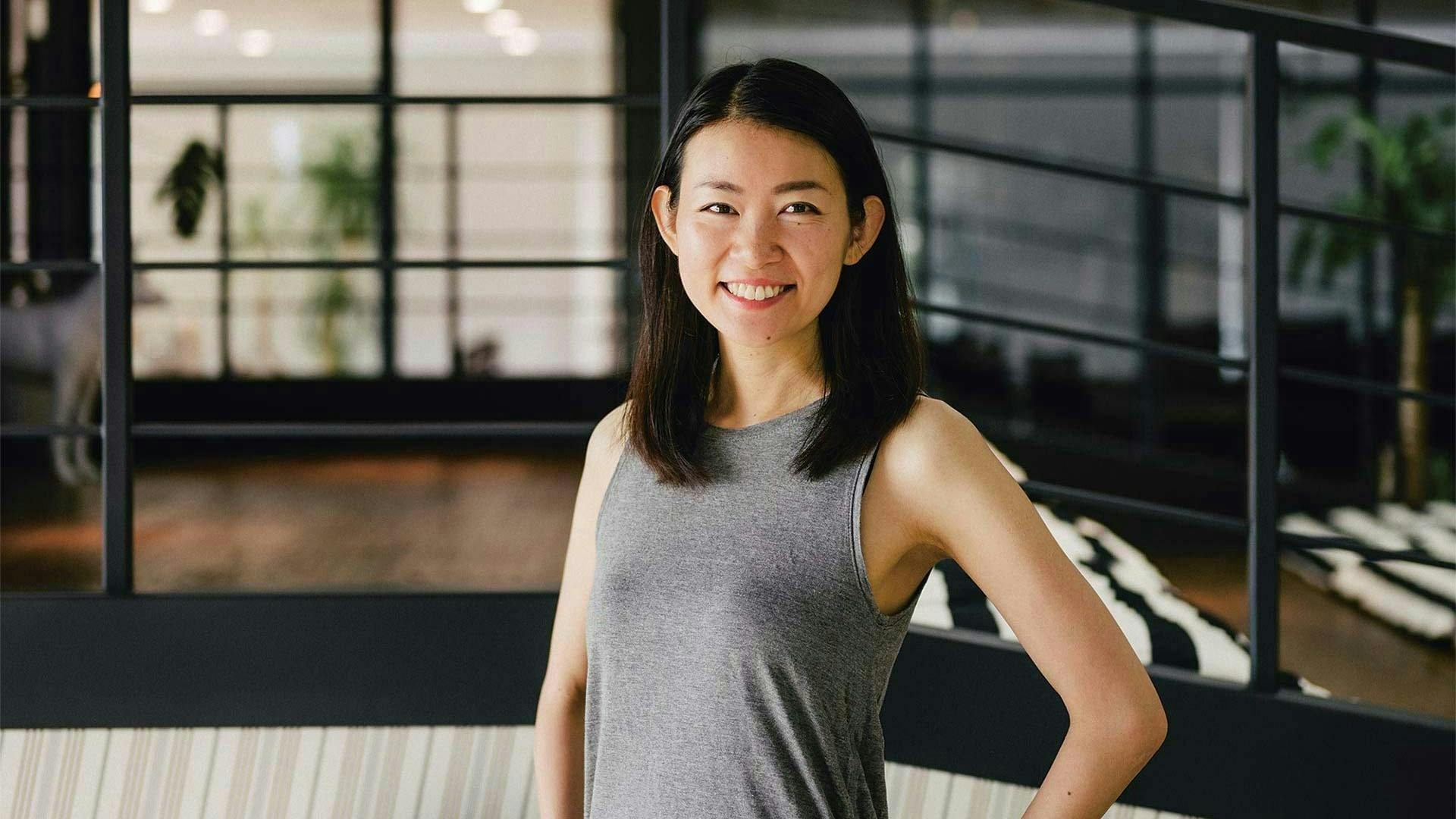Wantedly’s founder on creating the life and career that you want
hortly after leaving her stable job in finance, Akiko Naka discovered that a traditional career path was not for her. Following that realization, she decided to pursue her dream of founding a company that could reinvent the world of recruitment.
Akiko Naka started out her career on a traditional path. After graduating from Kyoto University in 2008, she landed herself a job as an equity salesman for Goldman Sachs. It wasn’t before long, however, that she dropped out.
Feeling uninspired by the world of finance, Akiko tried her hand at being a manga artist before joining Facebook Japan in 2010. It was there that she discovered an interest in social networking; how it made the world a more connected and open place.
Throughout her early career, Akiko observed how many people chose to take jobs based on money and security rather than interest. This formed the basis of her idea to launch Wantedly – a platform that could connect companies and employees based on shared values, rather than salary and benefits.
In addition to being a self-taught coder, Akiko is also one of the youngest women in the world to have a company listed on the Japanese stock exchange.
We sat down with Akiko to find out more about her mission to help people find careers they’re passionate about and the obstacles she had to overcome to make her mark in Japan’s burgeoning tech industry.

Wantedly’s CEO Akiko Naka. Photo: Startup Guide Tokyo
What was your entrepreneurial path?
When I was studying economics at Kyoto University, I started experimenting with running my own small tech company, which didn’t really go anywhere in the end. After graduating, I began working for Goldman Sachs as an equity saleswoman, which was a really good opportunity, but it just didn’t really excite me. I wanted to do something more, something that I could have ownership of and build myself from scratch. I began working for Facebook Japan in Tokyo, which is where I first became interested in building my own social-networking service.
I wanted to do something more, something that I could have ownership of and build myself from scratch
Job security seems to be quite highly valued in Japan. Was it seen as a big risk that you decided to leave your full-time job to become an entrepreneur?
Yes, absolutely. Most of the people I shared my idea with were worried about me – especially my mum. She thought I should work for at least five years and gain more experience before setting up my own business. However, my parents always inspired me to pursue my own interests and make decisions on my own. So, in spite of my mum's advice, I quit my job and started to build my product.
Can you explain more about what Wantedly does?
Wantedly is a platform where we connect users with companies based on shared values. The platform is different from traditional recruitment services in that the job posting does not include any details about salary or benefits. It just focuses on telling the story of the company’s vision.
Traditionally, when an employee applies for a job, they send a resume and get asked to do an interview. Instead, Wantedly enables users to casually drop by the offices of the companies they want to work for and meet their team. This way, people can get to know the companies and their working environments better, which can lead to the formation of long-lasting relationships. I think Wantedly is unique in that sense.
When money is attached to a job description, people tend to focus too much on what their salary will be and not enough on whether they would actually enjoy doing that job
Why is it so important to you to help people connect with companies based on shared values rather than salary and benefits?
Around the time I founded Wantedly, I was very inspired by a book I read called Motivation 3.0, which is written by a famous thought leader called Daniel Pink. He talks about how people’s motivations have changed over the years. Whereas previous generations were motivated by external incentives like salaries or company benefits, people today are more motivated by internal incentives, which he refers to as autonomy, purpose and mastery. Autonomy is about having ownership over your work, purpose is about having a specific reason why you’re doing something, and mastery is the ability to learn new skills over time.
I personally think that the salary and benefits a company can offer are equally as important as their vision and values. But money is such a powerful thing, it can really cloud people’s judgment. When money is attached to a job description, people tend to focus too much on what their salary will be and not enough on whether they would actually enjoy doing that job. For this reason, I wanted to make a platform that was more about bringing companies and employees together through a shared vision rather than through money.
What were some of your early difficulties, and how did you overcome them?
After quitting my job at Facebook Japan, I didn't have any engineers that could help me build the product, so I taught myself how to code and came up with a prototype. That was particularly difficult. After that, I was lucky enough to be featured on TechCrunch Japan, which enabled us to secure some pretty influential companies as our early users. The company went viral pretty quickly, and, because of that, we were able to raise our first few rounds of venture capital.
However, when I first founded the company back in 2012, I pitched my idea to a few people that worked in human resources. Nine out of ten of them turned me down. They told me that I had no experience in HR, and because of that, they weren’t interested in meeting me.
[ Read also: ‘It’s a privilege to be a startup CEO, but the lifestyle isn’t sustainable for the long term.’ ]
Getting clients in the beginning also wasn’t easy, but gradually, as more and more companies began to use Wantedly and were able to recruit really great talent, the news of our platform began to spread to others through word of mouth. Right now, we have over thirty thousand clients using our platform, including large corporates like Sony and Panasonic and international startups like Uber and Dropbox.

Akiko Naka and Wantedly’s team. Photo: Startup Guide Tokyo
What has been your biggest mistake to date?
When I first started to recruit people for my team, I didn't really know what I was doing. I didn’t have any previous experience in hiring people. To be honest, before I founded my own company I didn't really get why people conducted job interviews. It seemed so fake to me. So I skipped this process altogether and hired my friends who I knew were capable of doing the work and who had the right skills and attitude for the job.
It turned out that what I expected my employees to do and what they expected from the company were not really aligned, and it created chaos within the company. For a while, the atmosphere was quite bad. This is how I learned the importance of having a proper hiring process where you outline your expectations of your employees from the beginning and have an open conversation about what the company can offer them.
As founder and CEO, what aspects of the company are you particularly proud of?
I think that a lot of companies, especially in Japan, focus on growth and revenue rather than what they truly believe in. In terms of revenue, Wantedly hasn’t made as much as other companies that were founded around a similar time, because our goal has always been to grow our user base and create an impact on society rather than just earn money. I’m really proud of the fact that we’re a very value-oriented company.
Another thing I’m proud of is the engineers we’ve been able to recruit. During my time at Facebook, I noticed that engineers were encouraged to move fast, experiment and build things without any supervision. Of course, this has its disadvantages, but I think this kind of mentality enables younger startups to improve their products quickly. I adopted this culture into Wantedly and inspired my engineers to take initiative, make decisions and have ownership over their ideas. Because of that, we have a really strong, highly skilled engineering team.
Our goal has always been to grow our user base and create an impact on society rather than just earn money
What professional advice would you give to younger, less-experienced entrepreneurs?
I think that when you're building a company, people will give you advice about how to raise money, incorporate the newest tech ideas or nurture your company culture, so it’s easy to get distracted. Statistically, only a small percentage of startups actually make it to the point where they can worry about these things within their organizations, and many of them fail early on. Competition is tough, so always focus on your product in the early stages.
What are the pros and cons of starting up in Tokyo?
Honestly, it’s quite hard to think of the pros of starting up in Tokyo. I think labor costs are much cheaper here compared to other cities and the Japanese market is one of the largest in the world GDP wise. However, I think the Japanese entrepreneurial community is quite closed-minded and old-fashioned. It’s not as liberal or innovative as it is in San Francisco.
Also, if you build a product that focuses on the Japanese population, it’s unlikely that you’ll be able to scale it outside of Japan. This is mostly because the culture here is very unique and the product would, of course, have to be in Japanese. For any entrepreneurs looking to start a company in Japan, I’d recommend building your product for English speakers so that it can be relevant to consumers in global markets.
All photos: Startup Guide Tokyo
This interview was originally published in our Startup Guide Tokyo book which can be pre-purchased online here.

